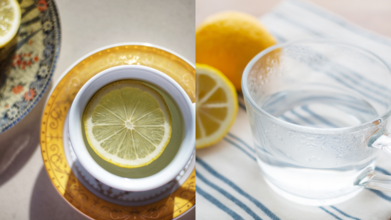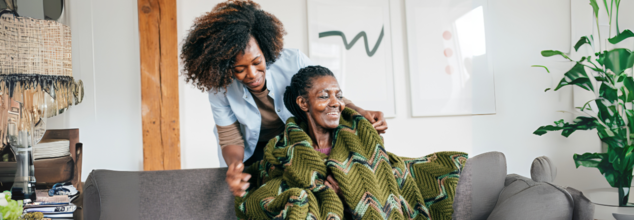- Health Conditions A-Z
- Health & Wellness
- Nutrition
- Fitness
- Health News
- Ayurveda
- Videos
- Medicine A-Z
- Parenting
- Web Stories
Lung Cancer Is Not Just a Smoker’s Disease; Here is What is Putting You at Risk

It is true that lung cancer is commonly seen among smokers. About 85 per cent of all lung cancers are directly related to tobacco use, especially smoking. However, nearly 10–20 per cent of lung cancers each year occur in people who have never smoked or who have smoked fewer than 100 cigarettes in their lifetime.
It is also the fifth most common cause of cancer-related death worldwide. Even if you have never smoked in your life, there is a possibility that you may still get lung cancer. While smoking has traditionally been seen as the leading culprit, other risk factors are increasingly being recognised.
Pollution, Family History and Hidden Risks
“We have seen that there are many other factors which may lead to the development of lung cancers. The most important ones are air pollution, especially in Southeast Asia and the Indian subcontinent," says Dr Kamran Ali, Principal Consultant, Lung Transplant and Thoracic Surgery, Max Super Speciality Hospital, New Delhi. He explains that pollutants from vehicles and industry, such as benzene and heavy metals, can contribute to lung cancer risk.
Long-term exposure to polluted air may cause persistent inflammation in the lungs, weakening the immune system and making it easier for cancer cells to grow. He warns about exposure to radon gas, which is found in soil and can sometimes creep into homes.
Long-term exposure to second-hand smoking or third-hand smoking also increases risk, says Dr Ali, pointing out that many people underestimate these dangers. He adds that genetic susceptibility also plays a role: "If your parents have lung cancer or your sibling has lung cancer, it does increase the risk of lung cancer for you as well.”
He also explains a lesser-known cancer, saying, “There is a separate intake entity called mesothelioma which arises from the surface of the lung. It is not from the lung itself. It is from the surface of it which is associated with asbestos.” Although asbestos is now banned, it was previously used in roofing and packaging industries. Dr Ali cautions against exposure to other heavy metals like chromium.
How Non-Smoker Lung Cancer Differs
Non-smoker lung cancers are slightly different from smokers’ lung cancers. “Classically, non-smokers’ lung cancer is usually an adenocarcinoma, which is found in the outer third of the lung surface,” he explains, adding that it often presents more vaguely than smoking-related cancers: “It also presents as a vague or a diffuse involvement of the lung rather than like a nodule or a mass.”
Dr Ali says it is typically slow-growing and less likely to spread to other parts of the body compared to lung cancer in smokers.
Watch for the Silent Signs
So lung cancer is a silent killer. If you have symptoms like a cough that worsens over time or a cough that does not go away, blood while you cough, unexplained weight loss, shortness of breath, or chest pain, you need to consult your local thoracic surgeon. The expert stresses that early detection is critical for effective treatment.
Prevention Starts with Awareness
To lower your risk, Dr Ali shares these preventive measures:
- Refrain from venturing out of your house when the air pollution level is in a severe state outside.
- If necessary to go outside, use an N95 mask in polluted areas.
- You should use air purifiers indoors to filter out harmful particles.
- Incorporate fresh fruits and vegetables in your daily diet.
- Drink plenty of water to keep you hydrated.
- You can practise some appropriate breathing exercises to enhance your lung function.
- If you have a strong family history of lung cancer, you must meet a thoracic surgeon or oncologist to get yourself evaluated.
The Itchy Truth About Pads and Tampons: What Your Period Products Are Not Telling You

For something that’s supposed to be a monthly saviour, your sanitary pad could actually be a trouble in disguise. If you’ve ever spent your period feeling itchy, sore, or just...off, you’re not imagining it. According to gynaecologist Dr Vaidehi Marathe, many conventional pads and tampons contain elements that don’t quite agree with your body.
Itchiness is a common complaint during menstruation, but most people blame sweat, heat, or hormones. The real problem, says Dr Marathe, might be your pad itself. Many commercial pads are loaded with synthetic materials, added fragrances, and chemical adhesives that can irritate the delicate skin in your intimate area. That persistent itch could be your body’s way of saying, please get this thing off me.
Rashes, roughness, and friction
It doesn’t end with itching. If you’ve ever developed a rash down there during your period, Dr Marathe says your pad’s texture or material could be behind it. "Poor-quality materials or excessive friction can cause chafing, redness, and irritation," she says in an Instagram video.
Even tampons, which many prefer for comfort and convenience, aren’t totally innocent. High-absorbency varieties are known to dry out the vaginal lining, leading to discomfort and even micro-tears. Dr Marathe warns that such dryness disturbs the natural balance of the vaginal mucosa, and that’s when things can start to get really unpleasant.
That smell isn’t just your period
While menstruation has a natural odour, a strange or strong scent often comes from bacterial buildup, not your body. Pads, especially the non-breathable kind, can trap moisture and create a breeding ground for bacteria. Dr Marathe points out that the odour is often caused by bacteria thriving in that warm, moist environment.
Healthier swaps
You don’t have to suffer for the sake of convenience. Look beyond the supermarket aisle. Cloth pads, menstrual cups, and period underwear are all gentler options that are free of harmful chemicals and better for your skin and the environment. They allow the area to breathe and are less likely to cause irritation or dryness.
Menstrual cups in particular have gained popularity for being economical, eco-friendly, and surprisingly comfortable once you get the hang of them.
Your period deserves better
Periods are already uncomfortable enough without adding allergic reactions, rashes, or infections to the mix. If you’re constantly battling irritation or feeling ‘off’ during your cycle, it’s worth examining what’s coming into contact with your skin for hours at a stretch.
What Happens When You Drink Lemon Water for 30 Days?

Many people start their day with a glass of lemon water, hoping for a range of health benefits—from better skin to improved digestion. But what actually happens when you stick to this habit every day for a month? According to gastroenterologist Dr Saurabh Sethi, lemon water can offer some real advantages, as long as you are aware of a few important points.
Lemons Pack a Big Punch
Lemons are packed with more than 30 beneficial plant compounds, says Dr Sethi. These include antioxidants and anti-inflammatory agents that support your body's daily housekeeping on a cellular level.
But freshly squeezed is important. “Pasteurised lemon juice often loses a significant portion of its nutritional value,” Dr Sethi explains.
Absorption Gets a Boost
While you are sipping away, thinking you are just hydrating enough, something pretty important is happening in the background. The natural acidity of lemons can help your body absorb minerals more effectively, particularly iron, according to Dr Sethi. That means your morning lemon ritual might be giving your iron supplements or spinach salads a bit of extra firepower.
And lemon water does not magically "alkalise" your body. But what it does do is help your digestive system set the stage for better nutrient uptake.
Skin Goals and Collagen Dreams
If you are secretly hoping for that elusive “glow-up” by day 30, you might be in luck. Lemons are a great source of vitamin C, a key player in the production of collagen, the protein responsible for keeping your skin firm, your joints cushioned, and your connective tissues in top shape.
Dr Sethi says that daily lemon water may support healthier skin from the inside out. Think of it as your internal skincare serum.
The Bitter Truth
As Dr Sethi points out, lemon water might not be ideal for everyone, especially those with acid reflux or sensitive stomachs. The very same acidity that helps with mineral absorption can irritate the oesophagus lining or worsen heartburn in susceptible folks. If you have ever felt that familiar burn after a glass of lemony water, your body is throwing a sign.
Dementia Caregivers Often End Up Being Nieces And Nephews Of The Family

(Credit-Canva)
Caring for a family member who has dementia is a herculean task. Not only does one have to be patient but also vigilant, keep track of things as well as find make sure to communicate with the person they are taking care of. Not many people feel up to the task and often experience caregiver’s burnout sooner or later. However, when a family member does get diagnosed with dementia, who usually steps up to the task?
A recent small study reveals that two-thirds of nieces and nephews who care for an older relative with dementia never anticipated taking on that responsibility. These caregivers often found themselves in the role either gradually or due to family circumstances, according to findings published in The Gerontologist.
One researcher noted that while this unplanned care shows immense love, it also hides a lot of stress. These caregivers juggle their own households, children, and jobs alongside their primary caregiving duties.
Driven by Love, Not Just Duty
Despite the unexpected nature of the role, these nieces and nephews often had strong, lifelong connections with their aunts and uncles. They were shaped by family ties to potentially become caregivers.
Many participants expressed feeling like they were "paying back the love" their aunt or uncle showed them growing up. This suggests that when care comes from a place of genuine gratitude rather than just obligation, caregivers are more likely to persevere, even when resources are scarce and stress is high.
Who Are These Caregivers?
For this study, researchers talked in depth with 20 nieces and 5 nephews who were caring for an aunt or uncle. These caregivers were between 38 and 67 years old and lived in several states. All of them either lived with their relative or saw them at least three times a week.
This research is especially important now because as the population gets older, many more extended family members might find themselves in unexpected caregiving roles.
Deep Family Bonds and Unexpected Demands
The study revealed that most of these caregivers grew up in the same town as their aunts and uncles. They often described their relatives as "fun" or their "favorite," someone they could talk to or get advice from. In a couple of families, the aunt was even like a second mother. These younger relatives kept strong connections with their aunts and uncles over the years.
Despite these close bonds, most of the caregivers (19 out of 25) never expected to become primary caregivers. For example, one nephew took on the role because his wife and her sisters worked outside the home, and he had a flexible remote job. Another niece stepped in because her own mother, who was initially caring for the aunt, became too sick to continue. She even described tough situations where her aunt would throw food.
The study also showed that a person's current life situation played a bigger part in them becoming a caregiver than factors like being single or not having children. Surprisingly, nearly half of the relatives with dementia had their own children still alive, and most had living brothers or sisters, yet the nieces and nephews still became the main caregivers.
Recognizing Non-Traditional Caregivers
These findings highlight that support systems need to recognize that non-traditional caregivers, like nieces and nephews, are often stepping in to fill crucial roles. Understanding what these extended family caregivers go through gives a more complete picture of how families care for their loved ones.
Learning about their experiences will help us figure out what support they're missing and create programs to help them stay healthy and well. This benefits everyone involved: the person with dementia, the caregiver, and society as a whole.
© 2024 Bennett, Coleman & Company Limited

